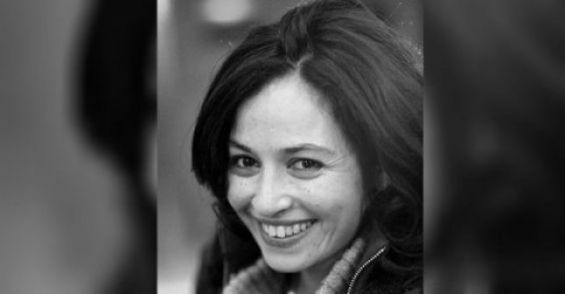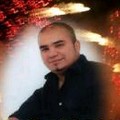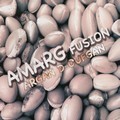A proud product of Morocco’s public educational system, Hind Saih is one of the few Moroccans specialized in documentary making. Yet, she was almost going to turn her back in the past to this world genre that she had loved since childhood.
Born and raised in Casablanca, Hind Saih studied pharmacy in Nancy, France. «It’s very difficult to know what you want to do at an early age. It was sort of an odd moment when I started to study something that I did not like at all but I managed to pull myself out of it by telling myself that I wanted to go for something that was completely different. It was a difficult choice, considering my scientific high school studies», she told Yabiladi.
Saih wanted to enter the world of entertainment, theater, and cinema, without knowing «why». «It seemed obvious to me, I wanted to present things, emotions, tell stories and find a way to do so, and it grew on me very quickly», she recalled. As a child, growing up in a film-loving family, she dreamed of this world that was fascinating her so much.
«I spent my time watching movies. I belong to that generation that went to the movie theater to watch two films in one afternoon. Sometimes we would rush to two different cinemas, so there were days when I watched three to four films a day. I also loved reading and used to be a bookworm».
A specialty born from a passion
For these reasons, she stopped her pharmacy studies and «started from scratch, opting for literature studies». After graduating college with a degree in film, she pursued her studies with a master’s degree and then another degree in documentary-making, a field that made sense to her.

«I fell in love with this genre, which touched my heart. I said to myself 'if we manage to mark in a cinematographic way, a material as volatile as scenes from real lives will be very beautiful'», she explained.
But the Moroccan «started to say» that she was a producer only after having «really produced four or five films». She waited to «learn and understand the nature of her work». «I never thought I'd become a producer, but the production sort of came looking for me», she explained.
To date, Hind Saih produced around thirty documentaries. The humble documentary-maker believes that she «had beginner's luck».
«For the first film I produced, I had international funding. It went well, I have continued since… And frankly, despite the difficulties, I do not regret it a second because it is a job that gives you the opportunity to reset everything, reinvent models, financially and creatively speaking, adapt to the person carrying the project, to the contexts and constantly evolving ...», she said, describing a passion which turned into a profession.
After having worked for several years with production company Play Film as a producer and distributor, she created with her husband, Dominique Barneaud, their own company Bellota Films in 2009.
«Homo sapiens: the new origins», a document «born under a lucky star»
As the Director of the International Documentary Film Festival in Agadir (FIDADOC) for several years, Moroccans rediscovered this week her first documentary event that is 100% dedicated to Morocco. Entitled «Homo sapiens: new origins», it was broadcast on October 10 as a bonus on TV channel Arte, with more than a million viewers and more than 600,000 views on YouTube, on October 15 as a bonus on Moroccan television Al Aoula and is scheduled for next January on 2M. It will even be rebroadcast this Sunday at 3.10 p.m. on said channel.
«This is one of my most unique film adventures. I have lived in France for 30 years. In 2017, I traveled to Morocco with my children to spend time with my family and that was the year the results of this discovery were made public. I was having coffee with my father while watching the news on CNN and it was not far from my family's hometown», she said. Her father was in fact born in Oualidia. «I felt I had a mission. I wanted it to be a demanding and spectacular film, but also for everyone to watch», she said.

«Arte has supported us financially to bring ambitious projects to light». She explained, acknowledging the «solid support of Moroccan television» in this project.
«It seemed absurd to me that a film would be made about this without a partnership with Morocco».
Describing the project, which «was not difficult to set up» but «admittedly long and delicate», the Moroccan documentary maker believes that «Homo sapiens: new origins» was «born under a lucky star with several concordances». «What is funny is that I have been making films for 20 years all over the world and this is the first time that I have worked on a film in Morocco. Whether it's on the story of the first homo sapiens and right next to my family's hometown, it was very special to me», she added.
«It is a project which has become very ambitious as it developed and as we discovered the reality of what is happening between the excavations of Jbel Irhoud and virtual paleoanthropology. It was fascinating to see what humans could do with little traces of nothing at all and how they could make them talk and make assumptions about how we lived 30,000 years ago».
Telling the story of life to future generations through documentaries
To the producer, «there were a lot of natural dramaturgical aspects», in addition to her «little Moroccan pride». «I wanted it to be a great film which also gives its place to the Moroccan part of this story that I had not found when it first made headlines, because we were only talking about the discovery but not the adventure as a whole», she stressed. For Hind Saih, documentaries are «the archives of tomorrow».
«They have an incredible and magical value because they tell about some things that we have not seen and that our children will not see.There is something about this that really attracted me; this responsibility to tell our children and future generations about the world as it is or was, without storytelling or distortions, especially when we see the world of today and the great gaps between truth and reality».
The Moroccan thus considers that it is a «genre that is essential». «It's a cinema that people really appreciate. When a documentary film marks you, it marks you for life because we know that it is the real life of the people», assures the Moroccan who «like many immigrants, holds so much love in her heart» for her country.
«Morocco, a land of history and heritage. I would dream of being able to produce outstanding films and help young Moroccan authors take a hold of their history. It is a very beautiful project for the future to collect memory for future generations, because it is a precious legacy and someone must do it», she concludes with optimism.





 chargement...
chargement...













